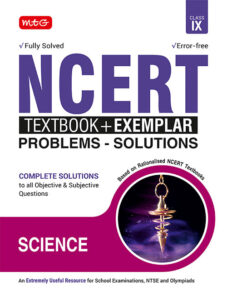
You can find multiple-choice questions (MCQs) for Class 9 Science Chapter 12 Improvement in Food Resources with answers below. These MCQs are specifically designed for students studying in Class 9 and follow the CBSE board curriculum. They align with the latest syllabus provided for Class 9 science. By attempting these MCQs, students can efficiently revise the concepts discussed in the chapter and effectively prepare for their Class 9 Annual examinations.
Previously – Sound Class 9 Science MCQ
Check Science Chapterwise Class 9 – Class 9 Science MCQ with Answers
Sound Class 9 Science MCQ
Q.1. Sound waves are classified as:
a) Transverse waves
b) Longitudinal waves
c) Electromagnetic waves
d) None of the above
Answer
Q.2. Which of the following is not a method of sound production?
a) Vibrations of vocal cords
b) Striking a tuning fork
c) Plucking a guitar string
d) Refracting light
Answer
Updated Class 9 syllabus – CBSE Syllabus for Class 9 (2023-24)
Q.3. The transmission of sound through a medium is called:
a) Production of sound
b) Propagation of sound
c) Reflection of sound
d) Range of hearing
Answer
Q. 4. The speed of sound is highest in which of the following mediums?
a) Air
b) Water
c) Solid
d) Vacuum
Answer
Q.5. Which of the following best describes a sound wave?
a) Transverse motion of particles
b) Oscillation of electromagnetic fields
c) Longitudinal motion of particles
d) Movement of light particles
Answer
In case you don’t know – Class 9 Deleted Syllabus 2023-24
Q.6. When a sound wave strikes a hard surface and bounces back, it is called:
a) Refraction
b) Absorption
c) Reflection
d) Diffraction
Answer
Q.7. What happens when you shout in a canyon and hear your own voice come back to you?
a) Reflection of sound
b) Echo
c) Reverberation
d) Range of hearing
Answer
Have you checked this yet? – MTG Monthly Magazines for Making NEET/JEE/CBSE/CUET Preparation Extraordinary!
Q.8. The persistence of sound after the original sound has stopped is called:
a) Echo
b) Reverberation
c) Reflection
d) Propagation
Answer
Q.9. Multiple reflections of sound are used in:
a) Radar systems
b) Sonar systems
c) Ultrasound imaging
d) All of the above
Answer
Q. 10. The range of frequencies that can be heard by a human ear is approximately:
a) 1 Hz to 100 Hz
b) 100 Hz to 1000 Hz
c) 20 Hz to 20,000 Hz
d) 20 Hz to 200 Hz
Answer
| We hope that the provided CBSE Class 9 Science MCQs Chapter 12 Improvement in Food Resources will be helpful for students studying in Class 9. If you want answers to NCERT Questions, MTGs NCERT Text Book+Exemplar Problems-Solutions Science Class 9 is the solution. If you have any questions or concerns about the NCERT Class 9 Science MCQs Chapter 12 Improvement in Food Resources, please leave a comment below and we will respond as soon as possible. | 
|






























